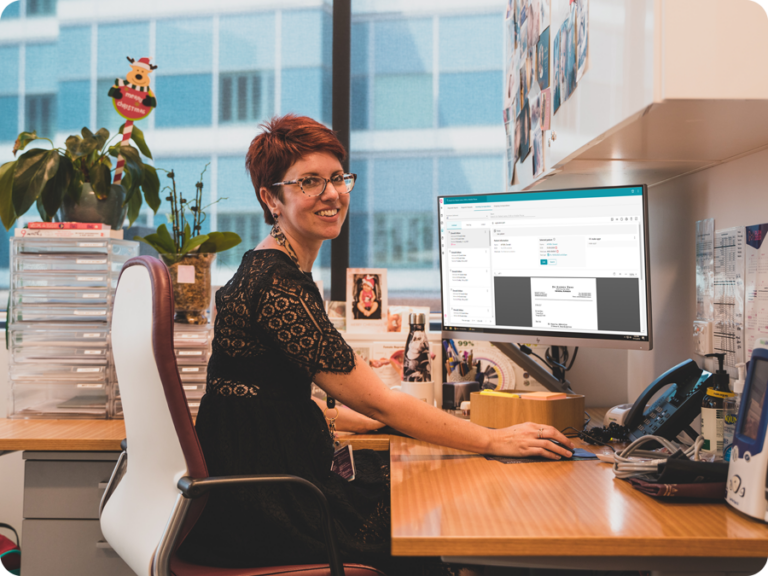Building a great practice is like a very long game of Tetris; from accounting, staffing and billing to outfitting and, choosing the right practice management software. Your success requires the various pieces of the practice to fit together in just the right ways.
Below we have outlined a few things that will help prepare you to get your specialist practice up and running.
- Decide on the format of your practice
- Build a support system
- Find a space
- Fitout your practice
- Set up your payment and communication infrastructure
- Logistics and more
Decide on the format of your practice
There are several options available if you’re starting your own private practice.
Go out on your own
Find the right practice space, fit it out, hire and train staff, implement IT systems, processes, hardware and software.
Go out on your own (with virtual support)
Findthe right practice space, fit it out, implement IT systems, processes, hardware and software and employ virtual practice management resources to run your practice.
Rent a room in an existing practice or sessional suites
This allows you flexibility to continue other medical work, such as working in the public health system, while building your business. If you remain an independent provider but share rooms, you still get to enjoy clinical autonomy.
Join a collective of specialists
This option lets you reap the benefits of shared resources – such as staffing, IT and rent – which reduces your costs. Just remember to put agreements in place for managing clinical data, e.g. who does the patient data belong to if one of you wants to leave?
Build a support system
A foundation of strong relationships will help steer you in the right direction and set you up for success. To do this:
Chat to colleagues in your professional networks
Talk to a wide range of perspectives from other specialists, practice managers, administration staff, and nurses should help you get a feel for the options.
Consider establishing more formal mentorships or fellowships
Connect with practitioners in your field and build business relationships with specialist advisers. A mentor may help you choose the right path and give you the confidence you need to forge ahead.
Establish a strong network of GPs
Their referrals will generate the majority of your business so it makes sense to start forming these relationships early. Read our article on forming and maintaining good GP referral relationships.
Find the right technical support
Ask colleagues for recommendations or take a look at our Certified Advisers: a group of IT experts and practice management consultants who are officially endorsed by Magentus.
Find a space
Geographic location is important
We recommend conducting some competitor research to ensure you can generate demand for your specialty services in the area. It’s better to set up somewhere with a need for practices in your niche, than compete with neighbouring practices for the same business.
Plan your physical requirements
Our research suggests opting for more space than you think you’ll need. Start by making a list of all the items you may need space for in your consulting room
Such as:
- A room big enough for a bed and a desk
- Somewhere for your patient to change
- Enough space to comfortably work around your patient, and if needed, bring in equipment
- Power to run diagnostic equipment such as ultrasound machines
- A nurse’s station
Then, use this information to search for a physical location that meets these requirements in the geographic location you would like your practice.
Fitout your practice
Once you’ve chosen your space, you’ll need to think about fitout. Read our article detailing this aspect of planning your practice, including regulations you will need to adhere to.
Set up your payment and communication infrastructure
You will need to invest in the day-to-day essentials needed to run a practice. Get the ball rolling on the basics, like phones and phone numbers, email addresses and all the devices you’ll need to communicate with your patients, GPs, Medicare and private health funds.
This includes Eftpos facilities and HICAPs, used in Allied Health for outpatient billing.
For our new practices on Gentu, we recommend Patient Payments brought to you by our partners at Ezidebit. Patient Payments provides a simple and secure payment solution that integrates with Gentu to reduce administrative burdens and aged debt. You will be able to take secure terminal and online payments for a great patient experience, with invoices that are reconciled with ease.
Logistics and more
You’ll also need to make a list of office and practice supplies, such as bins for medical waste, dedicated sharps disposal for needles etc.
Other considerations:
- Office and practice supplies, such as bins for medical waste, sharps disposal solutions for needles, etc.
- Computers and printers
- Security cameras, alarms and security protocols for staff (to protect them in the event they feel threatened by a patient, or need immediate assistance)
- Staff and patient confidentiality training in line with the Australian National Privacy Principles
- Fire accreditations – varied in each state
- Toilet facilities for able-bodied and disabled patients
- Disabled access to your premises
- Outsourcing office-maintenance services, such as cleaning
In summary
Your clinic location and space are crucial for the day-to-day workflow of your medical practice, so take your time with your decision and research and make sure you know the legal and regulatory requirements your practice will need to meet.
Read more of our new to private practice series below:
